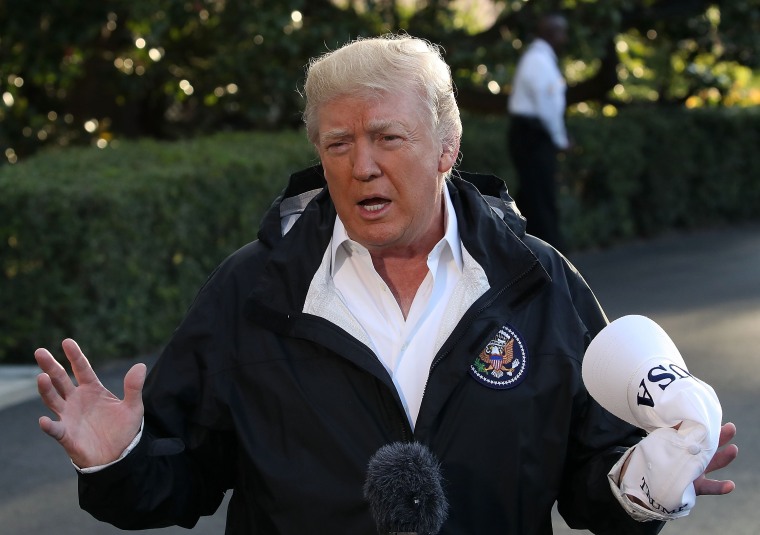For three weeks, Donald Trump wouldn't acknowledge the deadliest combat incident of his presidency. On Oct. 4, four U.S. Army Special Operations soldiers were killed in an ambush in Niger, and the president had said literally nothing about it, and the White House refused to release a condolence statement drafted by the National Security Council.
Yesterday, Trump finally mentioned the attack when a reporter asked whether the president had authorized the mission.
TRUMP: No, I didn't. Not specifically. But I have generals that are great generals. These are great fighters. These are warriors and --REPORTER: You gave them authority to do this mission.TRUMP: I gave them authority to do what's right so that we win. That's the authority they have.... My generals and my military, they have decision-making ability. As far as the incident that we're talking about, I've been seeing it just like you've been seeing it. I've been getting reports. They have to meet the enemy and they meet them tough, and that's what happens.
In other words, the president effectively wants to be seen as a bystander. Trump has delegated his powers to military leaders; they make decisions; and the president gets "reports" on what servicemen and women have been up to. He's "been seeing it just like" the rest of us.
If this sounds familiar, it's because yesterday wasn't the first time he's tried to pass the buck in the wake of a U.S. combat death. Soon after taking office, Trump authorized a mission in Yemen, which claimed the life of Navy SEAL William "Ryan" Owens, and when pressed for answers on what transpired, the president said the buck stops somewhere else.
"This was something that was, you know, just, they wanted to do," the president said, referring to U.S. generals. "They came to see me they explained what they wanted to do, the generals ... and they lost Ryan."
Evidently, we're supposed to believe "they" lost four U.S. Army Special Operations soldiers in Niger, too.
The chain of command, however, doesn't work this way. The president is ultimately responsible because he's the Commander in Chief of the world's most powerful military. Passing the buck doesn't work because there's no one to whom the buck can be passed.
I recall a prominent political figure writing a few years ago, "Leadership: Whatever happens, you're responsible. If it doesn't happen, you're responsible."
I believe the person who wrote that is named Donald J. Trump.
